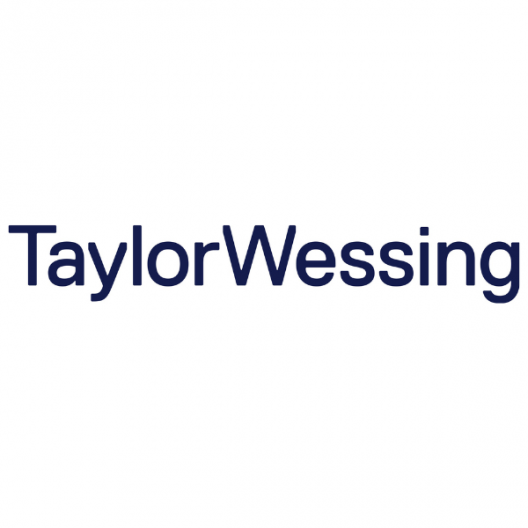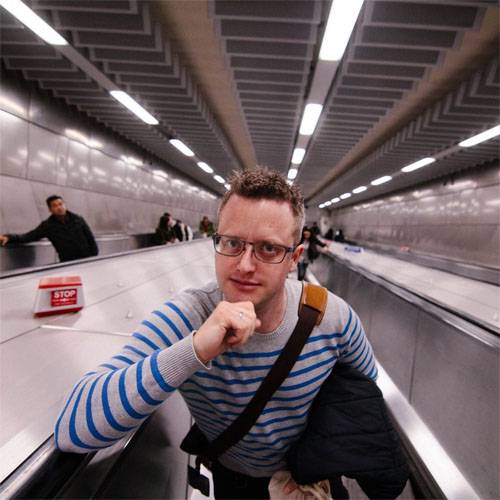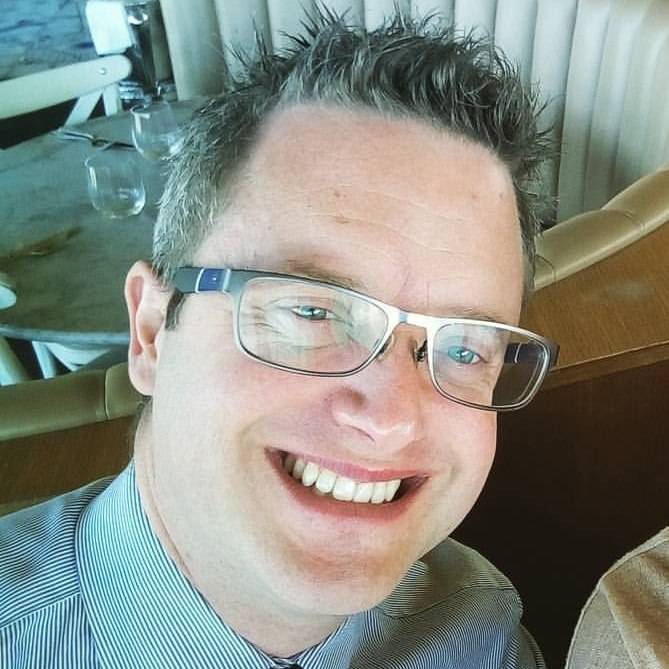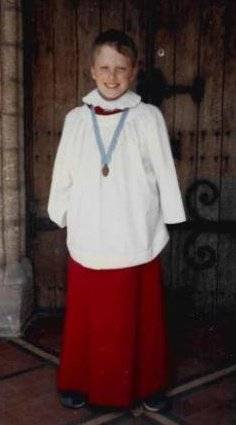
LGBTQ+ Inclusion at Work: Past & Present Realities
Interviews
Taylor Wessing’s Head of Talent Development Robin Panrucker shares the realities experienced by older LGBTQ+ professionals at work, explaining why they often end up going back into the closet each time they start a new job. He also shares his own personal coming out story, as well as why he joined Taylor Wessing, and what he’s doing to improve inclusion at the firm, as co-chair of the LGBTQ+ platform EqualiTW.

Hi Robin, can you tell us about your current role?
I’ve been at Taylor Wessing for almost eight years. When I when I first joined the firm, I was an advisor responsible for inductions, onboarding and various skills development programs, including our trainees and graduates.
Can your share your career journey with us?
Despite following the performing arts route, I left university knowing I wasn't good enough to be a professional actor. But I stayed in the creative world, landing various jobs from box office work to show producing on cruise ships/holiday resorts. After being made redundant in 2003 I fell into HR, when it was still called personnel, for the architecture and design world. I worked in recruitment and HR teams for companies like Nokia design and fairly big architecture practices like Foster & Partners and Gensler for some 11 years
During that time, I wanted to do more learning and development work to help staff progress, but I felt I just wasn't getting anywhere there. A very close ally and advocate said, ‘if you can't get what you need, in the biggest architectural practice in the world, you have to leave the industry’. So I decided to look for a new role in sectors that I hadn’t worked in before like law, accountancy or finance, and joined Taylor Wessing.
Back then, I was just so blown away, by how open associates and colleagues were at the firm, which is actually still really rare, especially in traditional sectors like law. The fact I was encouraged to be my authentic self, (and not just paying lip service to this). People asking about my partner (not girlfriend) plus there being an active LGBTQ+ network was truly overwhelming and took me a while to really embrace this change and feel relaxed enough to be authentic. Since I've been here, I’ve been promoted quite a few times. My current role has progressed. It's really varied and enables me to work with everybody in the business, with my support and strategic advice delivered across all levels. It's another example where you can really see the progress and support for change, The value and trust organisations place in individuality is often overlooked, but can be one of their most defining qualities to attract new talent and growth.
Whilst the “day job” is my main focus, I believe in helping the wider community and am involved with many different groups. As well as being the co-chair of the LGBTQ+ Network EqualiTW at Taylor Wessing. I’m the Chair of the Arts Society and part of the wider diversity groups, such as the cultural diversity, social mobility, future talent and gender networks.

Can you tell us about your role as co-chair of Taylor Wessing’s ERG EqualiTW?
I came to be co-chair of EqualiTW (about four years ago) when our previous chair left the firm. I decided I would like to be move involved in changing things we do, being part of the education of others and also to build out a network of allies. I feel it is important that once you reach a certain level you stand up and show others that they have a voice and lead the charge! Co-chair (and associate) Toby Ney and I sit on the Inclusion Board within the firm now, so we have a direct route into making change happen.
We have many goals for EqualiTW which centre around regular profiling of multiple LGBTQ+ identities, Delivering regular events (in collaboration with companies like myGwork, and selected speakers) to an internal and external audience which would include REACH (our alumni network), our local community and clients. We are passionate about collaborating with other internal networks (such as our Parenting Network, Cultural Diversity Network, Balance in Business (gender), Wellbeing and Social Mobility) on shared themes and also ensure that we work closely with charities such as Opening Doors London and MindOut. The main objective that underlies all of these is to show that Taylor Wessing has a strong, visible LGBTQ+ group with a great network of allies to ensure that we are working with a diverse range of people to help raise awareness of the challenges and issues that our community faces both in the workplace and our personal lives.
Why did you choose to work for Taylor Wessing?
I chose Taylor Wessing because (ironically, or not) it stood out and it was different. It's known for its lovely midpoint offered between traditional law and the creative space. What particularly attracted me to this firm is the creativity used to perfect the profession through employees and partners from a diverse range of backgrounds. That adds value to our overall package when delivering legal services. I remember someone saying to me that, you know, a piece of legislation is the same north of the river as it is south, what's different is, who's delivering it and how it's delivered. Having diversity of thoughts around the table, enables us to have more interesting conversations with our clients and deliver excellent legal services while being a trusted adviser. I believe that diversity of thought not only makes the working environment more interesting, but really challenges the way we all think, and it really adds to our client offering at the firm.
What was school and family life like growing up?
I was born and raised in Derbyshire in a small village, outside of Derby, in the middle of nowhere. As well as playing the piano and performing in school plays, one of my hobbies was doing ballet in the local village hall, and yes, sometimes in pink outfits. As a young boy, my then "gayness" was put down to me being creative and "theatrical". We moved down to the South side of Essex when I was around eight, where I went to a mixed primary school but then was enrolled in an all-boys secondary school.
So boys being boys, and sometimes horrible creatures, school life was not so great at that time. Unlike my experience in my home village, I suffered bullying in the guise of mental and verbal abuse on a daily basis. This went on for five years, until I was in the sixth form. I continued with my love for musicals at school and performing arts, which I took all much more seriously than my studies. Things thankfully changed in sixth form because it was mixed, and all my friends were girls as you can imagine. Then I went to uni to do a dance and drama degree. I thought it would be great, and that finally I could be out and who I want to be. But disappointingly that wasn't the case. There were just three other boys who identified as LGBTQ+, but back then you didn't speak about it, which seems so strange, especially being in dance world.

Can you share your coming out story?
My coming out was a bit strange, and weirdly, it happened the same weekend that I planned to tell my parents. I was 21 at the time already in a (secret) relationship with my first boyfriend. It was a Saturday morning and I was then living at home with my parents. My mum came out of nowhere and said: ‘Does your sister know you're gay?’, to which I replied ‘yes’. She said: ‘All right, well, don't tell your grandparents’. Then she went shopping and we never spoke about it after that. This troubled me as I guess it would have been good to have a wider conversation with her as one of her brothers was gay; which we only found out about just before he sadly died of cancer. My sister actually called me to berate me for not telling my brother (who is a lot younger than me) and "putting my parents in an awkward situation" – I will never forget how that made me feel. My brother called me to tell me he loved me and supported me, and still does to this day! I put negative reactions like these down to people not really understanding what a person goes through in their "coming out" and the need to come out all the time when meeting different people which is exhausting.
Interestingly, my dad was more open and willing to engage in a supportive manner. We met up one day for a drink in the pub, shortly after my mum’s chat. He sat there and just looked at me, and said ‘just tell me’; to which I replied: ‘What? That I'm gay?’ Then he said with relief: ‘Thank you. Although your mum has obviously told me already, I've been waiting for you to tell me that yourself.’ This is something I will always remember as I recall feeling so emotionally relieved by his reaction and that a weight had been lifted. I always thought my dad would be less supportive, but it was the opposite for me. The fact he was born and born and raised in East London, and grew up with a more diverse range of people than my mum, probably explains why he was more open to different ways people live and not just what is seen as "the norm".
How has LGBTQ+ acceptance in the workplace improved since you started work?
Older professionals in the LGBTQ+ community often find it hard to be out in the workplace, especially those who have spent so long trying to hide their true (LGBTQ+) identity. Even when I first joined Taylor Wessing, it actually wasn’t easy to be open and out as it is now. I think it’s a generational thing. I do feel that coming from a certain generation where it was still considered wrong to be LGBTQ+ and "not normal" or be a "dirty homosexual" really impacts you mentally as when you are told something constantly and consistently you do believe it, whether it is right or wrong. You make conscious decisions to be "less gay" and change who you are to please others. I have definitely done this throughout my entire working life. This has greater impact in the workplace as you choose who you want to be with socially. You tend to go back into the closet when starting new jobs and have to go through the same process of coming out once you learn who you can trust and that you won't be treated differently or be afforded lesser opportunities to progress. If this isn't apparent then you never leave the closet and therefore aren't able to live a full authentic life that other people are allowed to. But having really vocal and visible out role models really helps other colleagues that identify as LGBTQ+. I also believe that good mentors who are LGBTQ+ are important to this and you see this a lot in the older generation as they share their lived experiences and we are still learning how to navigate the world together. I try my hardest to be a strong role model and mentor to my LGBTQ+ siblings but have to admit that it can be hard sometimes as the negative thoughts can creep in from time to time and make me doubt myself.
Why should LGBTQ+ candidates and allies consider working at Taylor Wessing?
Taylor Wessing is a beacon for LGBTQ+ inclusion. As our graduates will tell you, we’re doing a lot of work to attract, engage and retain our staff. Mentoring, coaching and inclusion work is key to engagement and retention and shows that Taylor Wessing is a great place where you can not only be your authentic self, but also progress at. The firm firmly believes in inclusion and has many different networks that you can join to meet other people like you, but also to meet allies. This is actively encouraged by all and even has its own area on our performance reviews. The culture of the firm naturally lends itself to being authentic and for people to bring their authentic selves to work. Many of our partners and senior leaders are open about their sexuality and are proactively progressing change in other industries. This environment provides a better work life as people can expend their energy on their job and not on pretending to be someone different. This authenticity is taken seriously and forms part of some exercises in our various skills programmes (both UK and internationally) but most obviously in our Senior Associate Development Centre and Partner Assessment Centre.

